The Toronto Stroke Networks (TSNs) work collaboratively with regional partners to enable a cross-systems approach to knowledge translation (KT). This KT approach assists organizations in the standardization and implementation of stroke best practices and involves a variety of professional development activities for healthcare providers. Below you will find resources and opportunities to support your professional development.
This resource has been created for all new staff working in stroke care. Objectives of this resource are to:
The orientation resource is located within the Toronto Stroke Networks’ Virtual Community of Practice (TSNs VCoP). If you are a TSNs VCoP member, click here to access this resource. To become a member of the VCoP please go to www.strokecommunity.ca
A series of guides meant to support staff who may not have experience working with the acute stroke population and provides a summary of the typical process and resources required to support patients admitted to hospital following stroke.
Resources include:
To access these resources, login to the Toronto Stroke Networks’ Virtual Community of Practice (VCoP), then click the ‘Resources’ tab. If you are not a VCoP member, please go to www.strokecommunity.ca to join the VCoP.
A stroke competency series that presents nine guideline-based courses from stroke basics to urgent management, with an emphasis on excellence in quality care, this comprehensive series promotes healthcare team's skill, strategy, and performance, resulting in positive patient outcomes.
To register, please email: Toronto Stroke Networks
The Toronto Stroke Networks host various events and workshops throughout the year to support implementation of best practice stroke care. To learn more about these opportunities refer to the descriptions below.
To view a list of current events, refer to our events calendar. If the event date has passed or you would like more information contact us at info@tostroke.com
A provincially recognized workshop that equips clinicians with knowledge and skills to motivate change in patients/clients for better health outcomes. Application of the Guide for Stroke Recovery has been integrated into the session.
This 1.5 hour workshop equips clinicians with knowledge and skills to: introduce the GSR and describe its value to persons with stroke, families/ caregivers; support persons with stroke to manage their care and recovery with the use of the GSR; and support patient education, goal setting, transitions of care, and community reintegration.
This workshop will provide clinicians with an introduction to the CO-OP Approach™. CO-OP is a performance-based, problem-solving approach that enables skill acquisition through a process of strategy use and guided discovery. CO-OP was initially implemented at 5 rehabilitation sites using an evidence-informed knowledge translation approach to facilitate increased access to rehabilitation for persons with stroke and cognitive impairment. CO-OP implementation has been expanded to include acute care, an integrated stroke unit and outpatient rehab.
At this workshop you will expand your skills learned in the Introduction to the CO-OP Approach™ Workshop Series. You will learn how to effectively use the CO-OP Approach™ with families, caregivers and health care providers who are non-CO-OP trained to support improved outcomes for the person with stroke. You will also learn key considerations for the development of patient groups utilizing the CO-OP Approach™.
An evidence-informed, multi-modal education and knowledge translation program for healthcare providers working in stroke care. The purpose is to improve the life experience of persons with stroke and their families/caregivers through focused attention on psychosocial care and promoting a culture of hopeful care.
To learn more, contact us at info@tostroke.com
If you would like to be added to our e-mail distribution list to receive updates on stroke education and other events, please email us at info@tostroke.com. Your email address will not be shared with any third party
Provincial Stroke Rounds are organized by the Ontario Regional Education Group (OREG). Typically these rounds are held on the first Wednesday of the month between 8-9 am and are virtual.
These rounds cover a variety of topics primarily focused on new or emerging best practice research in a variety of stroke care areas (assessment, treatment, prevention, etc).
To participate, please contact your Ontario Regional Education Group (OREG) representative.
Amplifying the Patient Journey to Support Transitions in Stroke Care April 2024
Presenters: Dr. Siva Murugappan and Dr. Prema Samy
Stroke/ICU Liaison: A New Collaborative Model for the Interdisciplinary Care of Stroke Patients March 2024
Presenters: Dr. Federico Carpani and Dr. Keith Sivakumar
Enhancing Individualized Stroke Care in the Community - results of a community consultation in Southeastern Ontario December 2023
Presenter: Kayla Purdon, Best Practice Coordinator
Integrated Stroke Clinic: An Innovative Patient Centric Approach to Stroke Care - November 2023
Presenter: Dr. Atif Zafar, Medical Director of St. Michael's Hospital Comprehensive Stroke Program
Newly Released Smart Tips for Stroke Care: Everything you Need to Know! - October 2023
Presenters: Sue Verrilli and Jenna Wick
Implementation of Virtual Care in an Outpatient Rehabilitation Setting - May 2023
Presenters: Karl Wong and Gary Siu
FAST Heroes Health Education Campaign Children Making a Positive Impact in Stroke - April 2023
Presenters: Dr. Razmik Bebedjian, Jan Van Der Merwe, and Keli Cristofaro
Optimizing transitions for older adults with stroke to support successful community reintegration and life after stroke - March 2023
Presenters: Dr. Maureen Markle-Reid, Eileen Britt and David Dayler
The Stroke Core Competency Framework - February 2023
Presenters: Sandy Lyeo and Jodi Powell
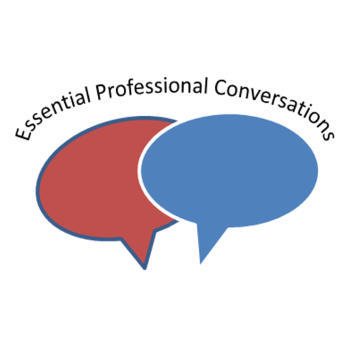
Essential Professional Conversations (EPCs) or ‘warm handovers’ is a standard approach used within Toronto Stroke Networks to foster enhanced communication, learning and meaningful cross-system collaboration between healthcare providers at times of transition. To support implementation of EPCs, a new online orientation module has been developed for all healthcare providers working in stroke care.
Click here to access this resource.
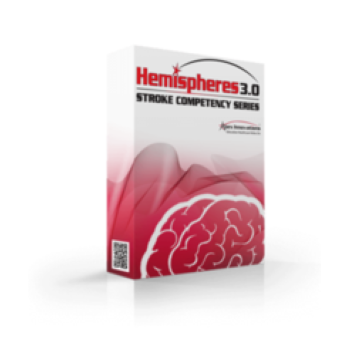
A stroke competency series that presents nine guideline-based courses from stroke basics to urgent management, with an emphasis on excellence in quality care, this comprehensive series promotes healthcare team's skill, strategy, and performance, resulting in positive patient outcomes.
To register, please email: Toronto Stroke Networks
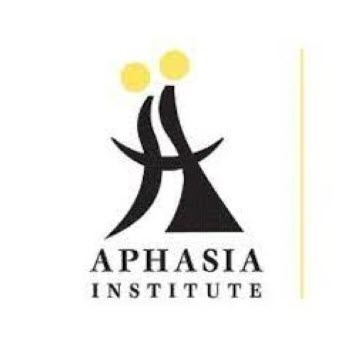
A free, short, online course, and a prerequisite to other training within the Aphasia Institute
Click here to access this resource. Registration is required.

An evidence-informed educational program for those working in stroke care. The program aims to establish a core level of competency to meet the psychosocial needs of persons with stroke and their families/caregivers and promote a culture of hope.
To learn more, contact us at info@tostroke.com or login to the TSNs’ Virtual Community of Practice.
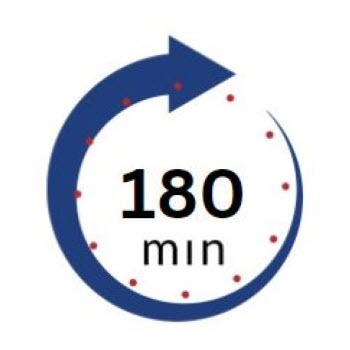
To support the provision and collection of Stroke Rehabilitation Intensity, a Rehabilitation Intensity Learning Module & Quiz was developed by the Ontario Regional Stroke Networks’ Rehabilitation Coordinator Group for inpatient rehabilitation programs that report to the National Rehabilitation Reporting System.
The Rehabilitation Intensity quiz is located at the end of the module. Since your program may have established structures for education completion and quiz tracking, connect with your manager prior to starting the quiz.
Click here to access this resource.
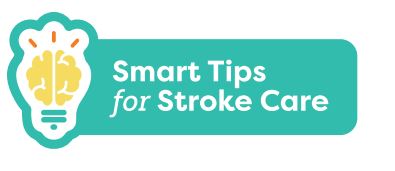
The resource highlights common changes due to stroke and strategies for managing these changes. This guide is intended for Personal Support Workers (PSWs) working in Long Term Care in Ontario. However, anyone interested in stroke care can benefit from using this resource, including PSWs in the community, family members, etc.
Click here to access this resource.

E-learning courses available to clinicians working in stroke care on topics related to stroke best practices. Registration required.
Click here to access this resource.
This framework aims to provide health care professionals working in stroke with a clear, comprehensive way to achieve the core competencies needed for evidence based stroke care. The Stroke Core Competencies (SCC) are an online framework consisting of a core set of stroke competencies for six disciplines – Nursing, Occupational Therapy, Physical Therapy, Recreation Therapy, Social Work and Speech-Language Pathology. Each competency contains a number of learning objectives, recommended learning resources/knowledge translation tools and suggested evaluation methods.
16 Competencies for Each Discipline
The framework comes equipped with a self-rating scale which allows health care providers to identify priority learning areas. As the competencies are selected, the individual or team can establish a realistic time frame for completion.
Examples for use include:
To access the Stroke Core Competency Framework, click here. This requires you to be a member of the TSNs’ Virtual Community of Practice and to be logged in.
These groups are designed to collaboratively optimize and, where possible, standardize implementation of profession-specific best practices across the continuum of care to improve patient outcomes. Each group meets virtually every quarter for one hour. Meetings are intended to facilitate conversations with an aim to: gain an understanding of current practices within their profession, look for opportunities to drive best practice, facilitate knowledge translation, share and collate resources and collaborate more broadly with other health care providers within a profession. Below are the four committees with contact information:
The Toronto Occupational Therapy Leadership Committee (acute care clinicians)
Group leads:
The Toronto Physiotherapy Leadership Committee (cross continuum clinicians)
The inaugural meeting is February 2024
Group leads:
The Toronto Social Work Leadership Committee (cross continuum clinicians)
Group leads:
The Toronto/GTA Stroke Speech-Language Pathology Leadership Committee (cross continuum clinicians)
Group leads:
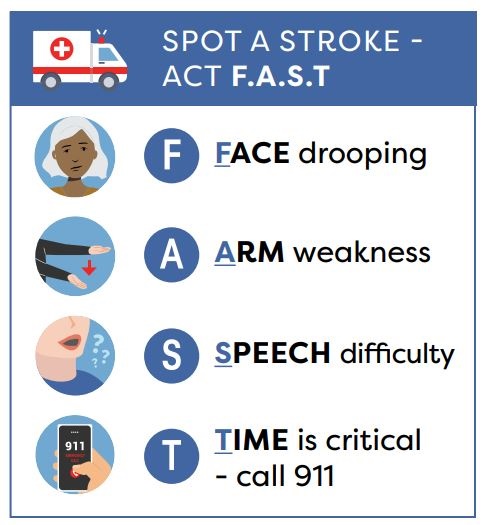
Feedback Form: Is something missing from our website, let us know below:
The Toronto Stroke Networks (TSNs) website and its content are intended for informational, reference, and resource purposes only. It is not intended to provide medical advice, diagnosis, or treatment. The information contained in this website is by no means a complete listing of the program and services available in the Greater Toronto Area. The TSNs do not endorse or support the information contained within the links provided nor can we assume responsibility for the accuracy of the information. The mention of products and services should not be assumed to be an endorsement of any kind.